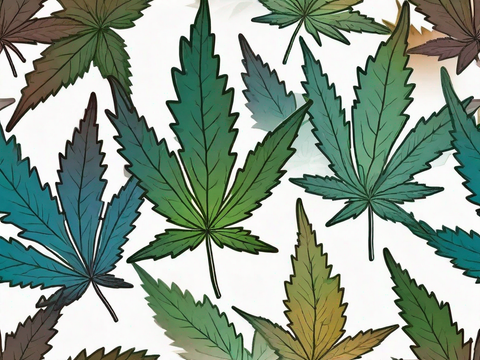
Answering 'what is cannabis tolerance?'
What is cannabis tolerance?
Complete a 7 Day Tolerance Break in only 1 Day, LEARN HOW.
Cannabis tolerance is a phenomenon that occurs when a person uses cannabis regularly. Over time, the body becomes accustomed to the effects of cannabis, requiring more of the substance to achieve the same effects. This is a common occurrence among frequent cannabis users and is often a cause for concern due to the potential health risks associated with increased consumption.
Understanding Cannabis Tolerance
Before we delve into the specifics of cannabis tolerance, it's essential to understand what tolerance is in the context of substance use. Tolerance is a physiological response to repeated exposure to a drug. It occurs when the body becomes less responsive to the drug, requiring higher doses to achieve the same effect. This is a natural response and is not necessarily indicative of addiction or dependence.
With cannabis, tolerance develops when the cannabinoid receptors in the brain become less responsive to the psychoactive compound in cannabis, tetrahydrocannabinol (THC). This happens because the receptors become desensitized to THC, leading to a decrease in its effects. This is why frequent cannabis users often report needing to use more cannabis to achieve the desired effects.
The Science Behind Cannabis Tolerance
Research into cannabis tolerance is still in its early stages, but studies have begun to shed light on why this phenomenon occurs. One of the main theories is that the body's endocannabinoid system, which is responsible for processing cannabinoids like THC, becomes less efficient with repeated exposure to cannabis.
Another theory suggests that the body produces fewer cannabinoid receptors in response to frequent cannabis use. This would mean that there are fewer receptors for the THC to bind to, reducing its effects. However, more research is needed to fully understand the mechanisms behind cannabis tolerance.
Factors Influencing Cannabis Tolerance
Several factors can influence the development of cannabis tolerance. These include the frequency of use, the potency of the cannabis used, and individual biological factors. For example, people who use cannabis daily are more likely to develop tolerance than those who use it less frequently.
The potency of the cannabis used can also play a role. High-THC cannabis strains are more likely to lead to tolerance because they expose the cannabinoid receptors to higher levels of THC. Individual biological factors, such as genetics and metabolism, can also influence how quickly a person develops tolerance.
Effects of Cannabis Tolerance
Cannabis tolerance can have several effects on the user. The most obvious is the need to use more cannabis to achieve the same effects. This can lead to increased consumption, which can have health and financial implications.
Another effect of cannabis tolerance is the potential for withdrawal symptoms when the user stops using cannabis. These can include irritability, insomnia, and loss of appetite. However, these symptoms are usually mild and subside within a few days.
Reducing Cannabis Tolerance
Fortunately, cannabis tolerance is not permanent and can be reduced by taking a break from cannabis use. This is often referred to as a "tolerance break" or "t-break." During this time, the body's cannabinoid receptors can recover and become more responsive to THC again.
The length of a tolerance break can vary depending on the individual and the extent of their tolerance. Some people may need only a few days, while others may need several weeks. It's important to listen to your body and give it the time it needs to reset.
Conclusion
Cannabis tolerance is a natural physiological response to repeated cannabis use. While it can lead to increased consumption and potential withdrawal symptoms, it is not permanent and can be reduced with a tolerance break. As with any substance, it's important to use cannabis responsibly and be aware of the potential effects of frequent use.
Remember, everyone's experience with cannabis is unique, and what works for one person may not work for another. Always listen to your body and consult with a healthcare professional if you have any concerns about your cannabis use.
